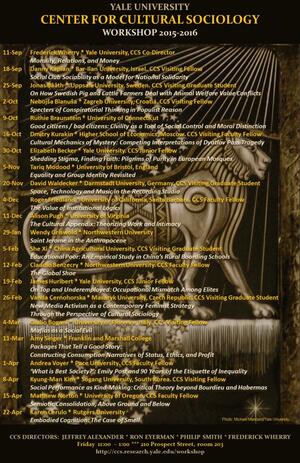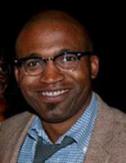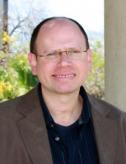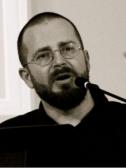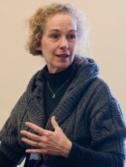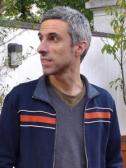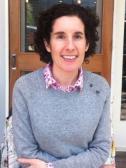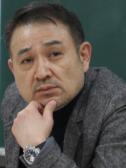|
Yale University, CCS Director
Morality, Relations, & Money
Required Reading:
|
|
Bar-Ilan University, Israel. CCS Visiting Fellow
Social Club Sociability as a model for National Solidarity
Abstract: Whereas theorists of nationalism often consider national solidarity as an abstract relation between strangers this essay provides a preliminary research strategy for studying national solidarity through the prism of friendship and interactions of sociability. It suggests that modern social institutions operate as social clubs of sorts where unaffiliated strangers transform into friends. This “social club sociability” provides a form of intimacy that extends to the collective level, enacting an underlying meta-narrative of “strangers-turned-friends” that carries symbolic meaning for national solidarity. Drawing on examples ranging from the mass army and Masonic lodges to social media it is argued that institutionally mediated ties of friendship contribute to compatriot’s sense of solidarity.
Required Reading:
|
|
Uppsala University, Sweden. CCS Visiting Graduate Student
On How Swedish Pig and Cattle Farmers Deal with Animal Welfare Value Conflicts
Abstract: Swedish pig and cattle farming is influenced by conflicts regarding farm animal welfare (FAW). In this paper I will investigate how Swedish farmers deal with value conflicts on FAW in pig and cattle farming. FAW is here defined as the appreciation of a good life for pigs and cattle, and conflicts mainly revolve around the tension between production effectiveness and the morality of FAW. The paper draws on five different value conflicts from in-depth interviews with 14 pig and cattle farmers. The farmers deal with these value conflicts through the use of pride over their own ability to keep up with expectations on Swedish FAW, and prejudice against other actors such as non-Swedish farmers and industrial farming. The analysis draws on George Simmel’s concepts value attribution and wechselwirkung. The conclusion is that pride and prejudice are used to fortify the positive values of Swedish pig and cattle farming.
Required Reading:
|
|
Darmstadt University, Germany. CCS Visiting Fellow
Space, Technology and Music in the Recording Studio
Abstract: This paper aims at fusing two themes: an exploration of the roles of space and technology in the recording of music in a professional studio setting through a discussion of Adorno’s ideas on space, music and technology. While Adorno has seen a continuous treatment in the sociology of music, the recording studio has been studied occasionally at best: Most of this research in sociology, musicology and sound studies has focused on the role of the recording engineer; little has been written about the specifics of music making in the studio. By using ethnographic material from recordings of a jazz ensemble and a hardcore punk band and by rereading Adorno’s radio studies and his unfinished theory of musical reproduction, this article aims to give insights into contemporary spatial and technological settings of music production.
Required Reading:
|
|
University of Connecticut
Good citizens/bad citizens: (In)civility discourse as symbolic boundary-work.
Required Reading:
|
|
Higher School of Economics, Moscow. CCS Visiting Fellow
Cultural Mechanics of Mystery: Competing Interpretations of the Dyatlov Pass Tragedy
Abstract: Mystery plays a fundamental though still not fully known and acknowledged role in modernity serving as important means of re-enchantment of social life. Thus, under certain conditions seemingly unimportant or irrelevant events can nevertheless attract enormous attention and emotional involvement. One of those cases is the Dyatlov Pass Tragedy that happened in 1959 in Northern Ural, where 9 hikers died under mysterious and still unknown circumstances. Nowadays, more than 50 years later, there are thousands of lay-researchers searching for the truth about the case and building competing explanatory accounts. In the absence of definitive clues, which would allow for a consensual rational explanation, deep cultural principles of imagination come to the fore, worthy the attention of cultural analysts. I argue that mysteries of such a type reveal the hidden role of cultural structures and thus pave the way for a cultural explanation. In this paper, I propose six hypotheses (H1-H6) concerning the relation between the mystery, governing narratives and forms of sacrality and transgression, and apply them to the Dyatlov case. I argue that the most important features and conditions of mystery are uncertainty and tension, and the emotional effect of the mystery in every particular case largely depends on the ways of establishing those conditions. Thus, in the Dyatlov case the effect of mystery is caused by a rare balance between the plausibility of competing versions of solving the puzzle (H1). The plausibility of every particular version depends on the centrality of the corresponding narrative (H2). Under condition of uncertainty, the interpretations develop following the genre specificity of those narratives (H3). I argue that the dynamics of development of interpretations follows Rene Girard’s principle of mythical elaboration, a transition from a vacuum of meanings, contradictions defying common sense and the lack of explanations (corresponding to the situation of violence) to the new clarity and attraction of established interpretations (mythical elaboration) (H4). Development strategies for interpretations (building a version) are basically dependent on construction of emotional attraction and on ‘triggers’ – particular symbols attracting attention and emotional excitement (H5). Every particular version can be characterized by the tie between trigger and mythical elaboration and this tie is based on the transgression of the governing narrative by a trigger-event (H6). The proposed model allows us to understand the cultural construction of mystery which is crucially important for explaining how deep cultural structures energize people’s urges, concerns and fascinations.
Required Reading:
|
|
|
|
Yale University. CCS Junior Fellow
Shedding Stigma, Finding Faith: Pilgrims of Purity in European Mosques
Required Reading:
|
|
University of Bristol, England
Equality and Group Identity Revisited
Required Reading:
|
|
|
|
University of Zagreb, Croatia. CCS Visiting Fellow
Specters of Conspiratorial Thinking in Populist Reason
Required Reading:
|
|
|
|
University of California, Santa Barbara. CCS Faculty Fellow
The Value of Institutional Logics
Required Reading:
|
|
University of Virginia
The Cultural Appendix: Theorizing Work and Intimacy
Required Reading:
|
|
|
|
Northwestern University
Saint Jerome in the Anthropocene
Required Reading:
|
|
China Agricultural University. CCS Visiting Graduate Student
Educational Poor: An empirical study in China’s rural boarding schools
Abstract:
Required Reading:
|
|
Northwestern University. CCS Faculty Fellow
The Global Shoe
Required Reading:
|
|
Yale University. CCS Junior Fellow
On top and underemployed: occupational mismatch among elites
Abstract:Underemployment is a significant social problem representing a mismatch between ambitions and outcomes. However, existing literature has not qualitatively looked at how individuals relate underemployment to social structures. Using in depth interviews N=19, I find that underemployment among professionals is conceived of as a frustration of success and professionalization narratives. I argue that underemployment exists as a mirror image of an abstract “ideal” employment. This ideal has three characteristics. It must be sufficiently remunerative, meaningful, and utilize talents and skills. If any of these characteristics are felt to be lacking, professionals can feel underemployed. I argue that these categories are not mere boxes to be checked in order to construct an ideal employment situation. Rather, they are a means by which professionals articulate deep cultural ideas about justice, success, and professionalization. When these ideas are challenged by underemployment, professionals re-orient themselves towards professional institutions and larger cultural structures.
Required Reading:
|
|
Masaryk University, Czech Republic. CCS Visiting Fulbright Fellow
New Media Activism as a Contemporary Feminist Strategy Through the Perspective of Cultural Sociology
Required Reading:
Cernohorska, Vanda ~ “Thank you for leaving all your good advice at the door”: On ASPEKT organization and online feminism in Slovakia
|
|
University of Florence, Italy. CCS Visiting Fellow
Mafias as a Social Evil
Required Reading:
Bogoni, Giulio ~ Mafias as a social evil. Civil society, family ties, and the contemporary cultural depiction of Italian mafias.
|
|
Franklin and Marshall College
Packages That Tell a Good Story: Constructing Consumption Narratives of Status, Ethics, and Profit
Required Reading:
Singer, Amy ~ Telling Good Stories about Indonesia: Entrepreneurial Perceptions of Reputational Stigma and Cultural Wealth
|
|
|
|
|
|
Pace University. CCS Faculty Fellow
‘What is Best Society?’: Emily Post and 90 Years of the Etiquette of Inequality
Required Reading:
Voyer, Andrea ~ ‘What is Best Society?’ Emily Post and 90 Years of the Etiquette of Inequality
|
|
Sogang University, South Korea. CCS Visiting Fellow
Social Performance as Kind-Making: Critical Theory beyond Bourdieu and Habermas
Required Reading:
Kim, Kyung-Man ~ Social Performance as Kind-Making: Critical Theory beyond Bourdieu and Habermas
|
|
University of Oregon. CCS Faculty Fellow
from ~
The Punishment of Pirates:
Interpretation and Institutional Order in the Early Modern English Empire
Introduction and Chapter 1 from the forthcoming book. Also included, the book proposal as a supplementary reading.
Required Reading:
Introduction: Meanings and Mass Executions & Chapter 1: Institutions as Cultural Systems
Supplemental Reading:
Book Proposal For: The Punishment of Pirates: Interpretation and Institutional Order in the Early Modern English Empire
|
|
Yale University. CCS Junior Fellow
Heritage Redevelopment as Civil Project
Required Reading:
Heritage Redevelopment as Civil Project
Supplemental Reading:
Introduction
|
